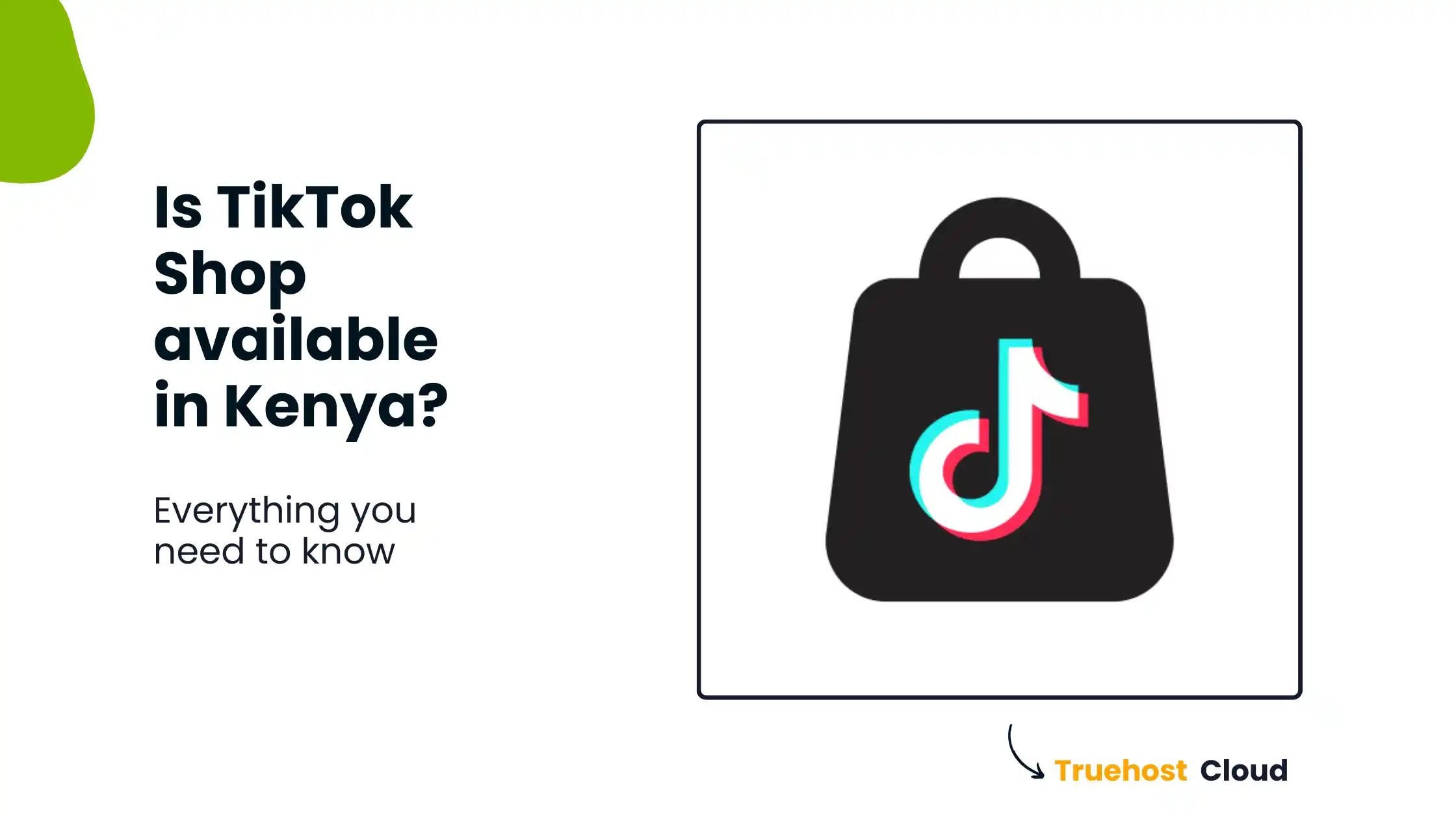Last updated on July 3rd, 2024 at 10:14 am
Have you ever wondered about the future of e-commerce in Kenya?
Fast forward to 2023, what are the trends and predictions on where the industry will be headed?
As we continue to navigate through the technological advancements and shifts in consumer behaviors, there’s no denying that e-commerce has become a vital aspect of the Kenyan economy.
So, let’s take a dive into the state of e-commerce in Kenya – what to expect, what’s currently happening, and what it all means for businesses and consumers alike.
Are you ready? Let’s go!
Statistics on e-commerce growth in Kenya
According to ecommerceDB.com, Kenya is the 56th largest market for eCommerce with a predicted revenue of US$3,237.6 million by 2023.
The revenue is expected to show a compound annual growth rate (CAGR 2023-2027) of 6.7%, resulting in a projected market volume of US$4,198.5 million by 2027.
According to Statista, user penetration is above the regional average with revenues expected to have a positive annual average growth of 16.4% by 2025.
In 2020, eCommerce generated the highest digital revenues in Kenya with revenue of US$1.1 billion and a share of 76.1%.
Major players in the e-commerce industry in Kenya
According to Kendesk Digital, Jumia is the top e-commerce site in Kenya founded in Nigeria in 2012.
The online marketplace offers a wide range of products from basic home essentials, cleaning supplies, beauty products to electronics.
Brands such as Toyota, Mazda, Honda, Nissan, BMW, Mercedes Benz, VW, and Subaru are all available on the platform.
Cheki is the number 1 Auto website with more car buyers and car sellers than any other site in Kenya.
Even ecommerceDB.com agrees, Jumia is the biggest player in the Kenyan eCommerce market, with a revenue of US$8.7 million in 2021.
Mydawa.com and phoneplacekenya.com are the second- and third-largest stores, with US$3.6 million and US$3.5 million, respectively.
Related: List Of Online Shops In Kenya Edition
Challenges faced by e-commerce businesses in Kenya
According to a recent Kenya National Bureau of Statistics study, only 15% of Kenyans had purchased online in the past year.
One of the key challenges facing e-commerce in Kenya is the lack of trust among consumers due to concerns about security and fraud.
Another challenge facing e-commerce in Kenya is the lack of a national address system, making it difficult for businesses to deliver goods to customers and for consumers to track their orders.
Additional challenges for companies interested in e-commerce include logistics and infrastructure, physical addressing, cost of technology, as well as cybersecurity.
Currently, many African countries, including Kenya, have very poor fraud detection and prevention mechanisms.
Trends in e-commerce in Kenya in 2024
Let’s look at some of the online shopping trends in Kenya right now
a. Increase in mobile commerce
As of 2020, the value of mobile commerce transactions in Kenya reached nearly 9.4 trillion Kenyan shillings (around 84 billion U.S. dollars).
This is a clear indication that mobile commerce is on the rise in Kenya and will continue to grow over the next few years.
The convenience that comes with mobile shopping has attracted more customers to make purchases using their smartphones or tablets.
One factor contributing to the growth of mobile commerce is improved internet connectivity across Kenya.
With more people gaining access to high-speed internet, the number of online shoppers has increased significantly.
Consumers can easily browse through different e-commerce platforms from anywhere and at any time using their mobile devices.
Moreover, retailers are now investing heavily in developing user-friendly mobile apps and websites optimized for small screens as they seek to tap into this growing market trend.
As such, it is safe to say that we should expect an even greater increase in the number of consumers embracing mobile commerce in Kenya over the coming years.
b. Emergence of new payment options
Some of Kenya’s most popular online payment methods include PayPal, PesaPal, Direct Pay Online (DPO), iPay, Skrill, PayU, Dusu Pay and Rave.
The emergence of new payment options is one of the most significant trends in e-commerce in Kenya in 2023.
Mobile money platforms have already gained popularity, but now emerging fintech companies offer even more innovative payment solutions.
For instance, some companies allow shoppers to pay for products over a period through installment payments, while others enable customers to earn and redeem loyalty points across multiple businesses.
The shift towards contactless payments has also grown considerably amid the COVID-19 pandemic.
As such, mobile wallets and QR codes have become increasingly popular as they reduce physical contact when making purchases.
Additionally, online retailers are slowly adopting cryptocurrencies as a form of payment.
This trend is likely to continue as more people embrace digital currencies due to their convenience and accessibility.
c. Expansion of e-commerce to rural areas
This is a trend that has been gaining momentum in Kenya in recent years.
With the growth of mobile phone and internet penetration, more people in rural areas are gaining access to online shopping platforms.
This trend is expected to continue in 2023, as e-commerce companies seek new product and service markets.
One of the main drivers of this trend is the increasing demand for convenience among consumers.
Many people in rural areas do not have easy access to physical retail stores, making online shopping an attractive alternative.
In addition, e-commerce companies are offering more competitive prices than traditional brick-and-mortar retailers, which can be especially appealing to price-sensitive consumers.
A good example of a company driving this change is Copia.
Copia is an online shopping platform in Kenya that provides shoppers with a wide range of products including appliances, groceries and food.
They have over 30,000 collection points across Central, Eastern, Nyanza and Western Kenya.
Copia also offers a wide range of electronic products for sale online.
And you can send foodstuffs, household, construction, electronics & farm feeds to mashinani and they will deliver them in 2-4 days to Central, Eastern, Nyanza and Western Kenya.
Predictions for the future of e-commerce in Kenya
a. Growth of cross-border e-commerce
This growth is likely to be driven by factors such as increasing internet access and adoption of mobile devices, expanding logistics networks, and easing of trade barriers.
As more Kenyan businesses embrace cross-border e-commerce, they will have access to a wider customer base, enabling them to tap into new markets and increase their revenue streams.
In addition, this trend will also create new job opportunities in sectors such as logistics and technology.
However, there are also potential implications associated with the growth of cross-border e-commerce.
These include increased competition for local businesses from foreign players with lower production and distribution costs.
It may also lead to challenges related to taxation policies and regulatory frameworks that may differ across different countries.
Nonetheless, the trend towards cross-border e-commerce is expected to positively impact the Kenyan economy by driving growth and creating new business opportunities.
b. Increased use of artificial intelligence and machine learning
Artificial intelligence (AI) and machine learning (ML) have been making waves in the e-commerce industry, and their use is only expected to increase in Kenya by 2023.
One major way this will happen is by implementing chatbots, virtual assistants and voice-activated devices that can help customers search for products, make purchases, get recommendations, track orders and more.
This increased use of AI and ML has several implications for e-commerce businesses in Kenya.
Firstly, it will enable them to provide personalized customer experiences at scale.
By leveraging data from previous transactions and online behavior patterns, AI-powered systems can predict what customers might be interested in buying next or what promotions they are most likely to respond to.
Secondly, it will facilitate faster order processing times while reducing errors.
By automating routine tasks such as order fulfillment or inventory management using ML algorithms that analyze past trends and current demand levels, retailers can minimize human error and ensure that orders are delivered on time.
c. Expansion of e-commerce into new industries such as healthcare and education
One way this expansion is set to happen is through the development of specialized e-commerce platforms that cater specifically for healthcare and education-related products and services.
These platforms will provide consumers with access to a wider range of products, including medical supplies, prescription drugs, educational resources, and online learning tools.
The implications of this expansion are significant.
For one, it will make healthcare and education more accessible to people living in remote areas or those who cannot easily access physical premises due to mobility issues.
It will create new business opportunities for entrepreneurs looking to venture into these industries.
However, there may also be challenges related to regulation and privacy concerns that need to be addressed as e-commerce continues its expansion into previously uncharted territories like healthcare and education.
Impact of the state of e-commerce in Kenya on the economy
a. Increase in employment opportunities
With the rapid growth of e-commerce in Kenya, there has been a significant increase in employment opportunities across various sectors.
E-commerce platforms are hiring more employees to manage their websites, process orders and payments, handle customer support services, and manage logistics.
Additionally, as more businesses adopt e-commerce platforms to sell their products and services, there is an increased demand for digital marketers and content creators who can develop effective online marketing strategies.
Moreover, there is a growing need for delivery and courier services to transport goods purchased through e-commerce platforms.
This has led to the creation of new job opportunities such as delivery drivers and warehouse personnel. The expansion of e-commerce has also led to the emergence of new industries like fintech which require skilled professionals.
b. Boost in foreign investment
The e-commerce industry in Kenya is set to receive a significant boost in foreign investment over the next few years.
In 2023, foreign investors are expected to pour more money into Kenyan e-commerce companies due to the country’s growing middle class and increasing internet penetration rates.
The rise of mobile payments and digital wallets have also made it easier for Kenyans to shop online and make transactions without needing a credit card.
With more investment comes increased competition, which could drive down prices for consumers and force e-commerce companies to innovate and improve their services.
This may include offering faster delivery times, better customer service, or implementing new technologies such as virtual reality shopping experiences.
However, there are concerns that foreign investment could lead to the domination of multinational corporations at the expense of local businesses.
c. Improvements in overall economic growth
As e-commerce continues to expand in Kenya, it is expected that the country’s overall economic growth will also improve.
This can be attributed to a number of factors such as increased consumer spending, job creation, and opportunities for small businesses.
With more people shopping online, there will also be a greater demand for delivery services, creating jobs within the logistics sector.
In addition, e-commerce platforms provide opportunities for small businesses and entrepreneurs to reach a wider market beyond their local area.
This can lead to increased sales and revenue, ultimately contributing to overall economic growth.
Furthermore, with the increasing trend towards mobile commerce in Kenya, there is potential for even greater economic benefits as consumers are able to make purchases on-the-go using their smartphones.
Conclusion
Overall, the state of e-commerce in Kenya is growing rapidly and is poised for continued growth in the years to come.
While challenges remain, businesses and consumers alike are embracing the convenience and efficiency of e-commerce, and this trend is expected to continue into the future.
As long as the industry continues to innovate and adapt to changing market conditions, the future looks bright for e-commerce in Kenya.
 Domain SearchInstantly check and register your preferred domain name
Domain SearchInstantly check and register your preferred domain name Web Hosting
Web Hosting cPanel HostingHosting powered by cPanel (Most user friendly)
cPanel HostingHosting powered by cPanel (Most user friendly) KE Domains
KE Domains Reseller HostingStart your own hosting business without tech hustles
Reseller HostingStart your own hosting business without tech hustles Windows HostingOptimized for Windows-based applications and sites.
Windows HostingOptimized for Windows-based applications and sites. Free Domain
Free Domain Affiliate ProgramEarn commissions by referring customers to our platforms
Affiliate ProgramEarn commissions by referring customers to our platforms Free HostingTest our SSD Hosting for free, for life (1GB storage)
Free HostingTest our SSD Hosting for free, for life (1GB storage) Domain TransferMove your domain to us with zero downtime and full control
Domain TransferMove your domain to us with zero downtime and full control All DomainsBrowse and register domain extensions from around the world
All DomainsBrowse and register domain extensions from around the world .Com Domain
.Com Domain WhoisLook up domain ownership, expiry dates, and registrar information
WhoisLook up domain ownership, expiry dates, and registrar information VPS Hosting
VPS Hosting Managed VPSNon techy? Opt for fully managed VPS server
Managed VPSNon techy? Opt for fully managed VPS server Dedicated ServersEnjoy unmatched power and control with your own physical server.
Dedicated ServersEnjoy unmatched power and control with your own physical server. SupportOur support guides cover everything you need to know about our services
SupportOur support guides cover everything you need to know about our services








